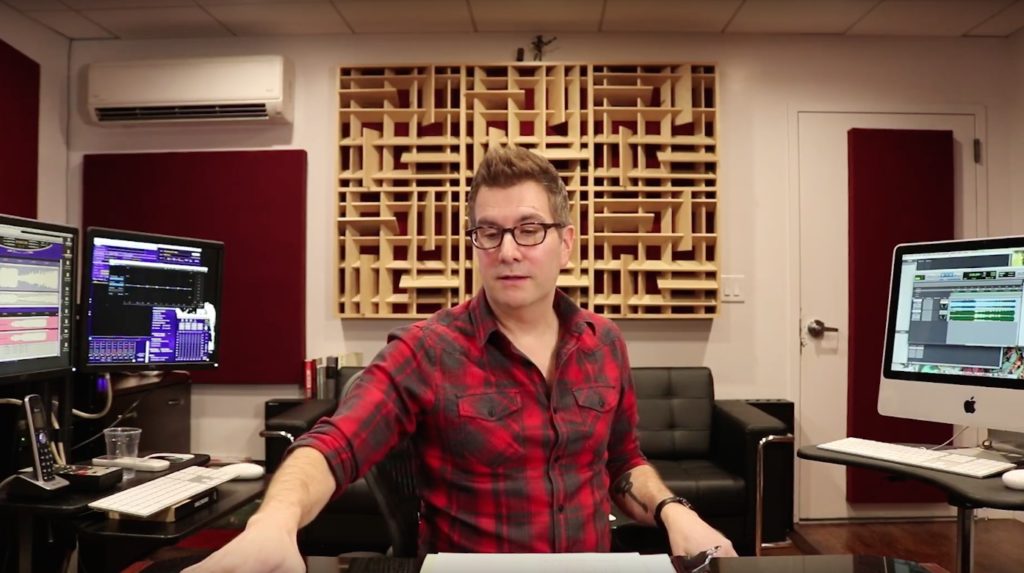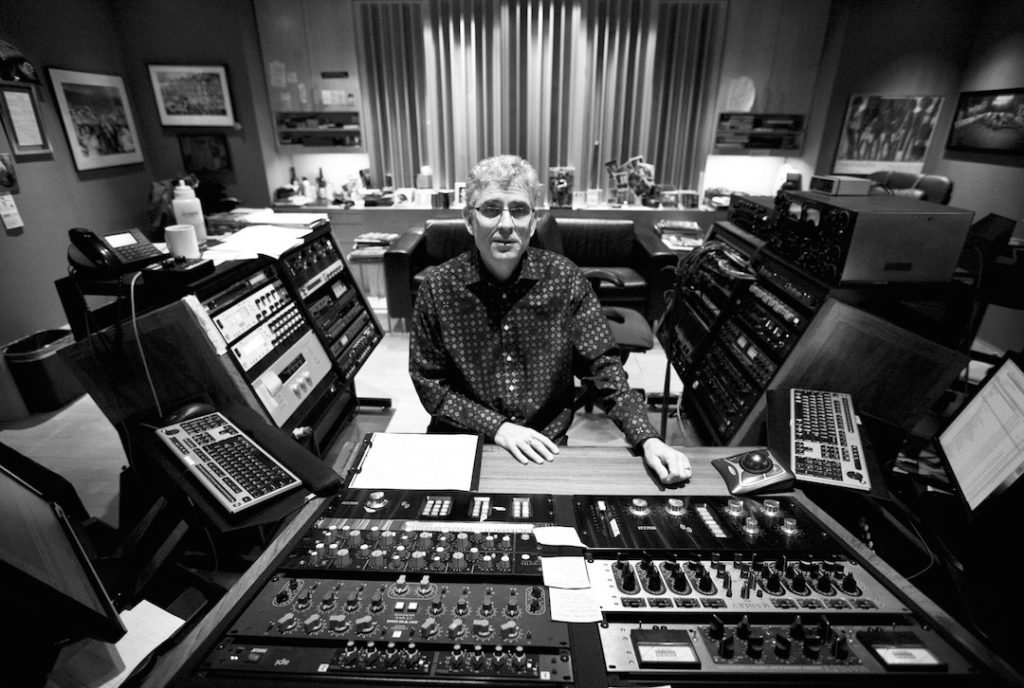A Beginner’s Guide to Mastering: The 5 Key Benefits & Goals of Music Mastering
This is a guest post by Mark Bacino. For even more on mastering, try Justin Colletti’s new full-length course, Mastering Demystified.

Mastering is the final technical and creative touch in the music production process. But what does it really entail?
If you’re planning to send your music out into the world, whether it is through iTunes or Spotify, Bandcamp or Soundcloud, CD or vinyl, you’ll probably want to imbue that music with the benefits and competitive edge that mastering can provide.
Because mastering is such a specialized process, this is a place where veering off the DIY path is usually a smart move. So it’s wise to do some research to find a qualified, professional mastering engineer in your city.
Perhaps the most important priority in finding a professional mastering engineer is to make sure they’ve done work you like. You should feel confident about partnering with this person and comfortable with the idea of putting your music in their capable and experienced hands for your project’s final touches.
But what does a mastering engineer really…. do? Here are the most essential benefits that pro mastering can bring to the sonic party:
1. Sonic Enhancement
At the most basic level, a professional mastering engineer’s job is to sonically enhance, improve and—when needed—even repair your tracks through the use of precision monitoring, EQ, compression, limiting, and noise removal techniques.
A great mastering engineer will usually strive to do as little as possible to your music, intervening only when necessary. But sometimes, mastering engineers will dig in harder to help you take your mix from where it is now to that next level you’ve been dreaming of.
In the off chance a mix is too forgone to get great results with, they may even be able to provide kind and useful feedback to help you overcome your stumbling blocks, or deal with the shortcomings of your room.
2. Translation
While working to enhance your tracks, the mastering engineer will also look to improve how compatible and versatile your tracks are, so that your music will sound its best whether it is heard on a high-end stereo system or a pair of earbuds.
A good mix may sound great on the system you mixed it on. But a good master should sound great everywhere.
3. Level
Another key function of the mastering process is to increase the average volume level of your tracks while still retaining your music’s inherent dynamics. A good mastering engineer will achieve all through the judicious use of compression and/or limiting.
When done correctly, the dynamics and impact will remain largely intact while your tracks become comparable in perceived level compared to most commercially released songs.
When done poorly, your tracks can end up sounding overly loud, harsh and draining, or even small and crunchy, with little to no dynamics present.
Bad mastering can have a flattening effect on your music, as the gentle parts of your songs sound as if they’re at the same volume and intensity level as the energetic sections, sucking the life out of what should be the most impactful moments in your tracks.
A little bit of extra loudness can be idiomatic for certain styles, and so can a little bit of extra dynamic range, so be sure to discuss the loudness vs. dynamics balance with your mastering engineer at the top of your session.
4. Cohesion and Sequencing
When mastering an album of material, as opposed to just a single track, it’s the mastering engineer’s job to compile and sequence the songs.
With guidance from either the artist or the producer, the engineer will put the tracks in running order, and customize the spacing between songs, to make sure the album has a great flow.
A mastering engineer will also work to make sure the volume level from track to track stays relatively consistent, and that there are no jarring jumps or drops in level from one track to another.
A good mastering engineer will also do the same for the tonal balance of your tracks, making sure that the balance of bass, middle and treble sounds appropriate from track to track, while also respecting the natural differences in each song.
5. Formatting
In the final stage of the mastering process, the mastering engineer will create a production master that will contain your newly polished, “mastered” tracks.
This master is what will later be used as the source for the creation of end-user products: Your WAVs, MP3 files, CDs, FLACs and so on.
Up until recently, the most common final format for your masters would have usually been a Red Book formatted CD-R (16 bits, 44.1k, with CD-TEXT), or a DDP file, which is basically a software version of a mastered CD.
With the ascendance of digital distribution however, it is becoming increasingly common for the final masters to come in the form of a simple collection of 16-bit WAV files which can be uploaded to digital distribution services like Tunecore, CD Baby, Bandcamp, or even to a CD or vinyl pressing plant’s online portal.
If you are working with a label or pressing plant, be sure to ask for their preference in delivery format so your mastering engineer can get you exactly what you need.
The Age of Automation

Joe Lambert tweaking settings the “old-fashioned” human way in his mastering tutorial with SonicScoop. Click for video.
In recent years, there has emerged an alternative to handing your tracks over to an experienced, humanoid, mastering engineer: You can also submit your music to an experienced, computer-oid engineer for some of these final tweaks.
With the advent of companies/technologies like LANDR, mastering can also now be performed via a complex algorithm that’s a bit like using an “intelligent” plugin preset that adapts to the track.
Obviously, your mileage may vary here, with some users singing automated mastering’s praises and others, well, not so much.
In the end, if you’re new to the concept of mastering (or even not-so-new), don’t be intimidated. Mastering has always been an integral part of the professional music production chain and also, in some ways, has been the most mysterious. But it’s not because the underlying concepts are that much more complicated than those in mixing. It’s just a separate speciality, skillset and discipline.
Hopefully this rundown helps clear up any misconceptions you may have regarding the process. Happy mastering!
Mark Bacino is a singer-songwriter based in New York City.
When not crafting his own melodic brand of retro-pop, Mark can be found producing fellow artists or composing for television/advertising via his Queens English Recording Co.
Mark also is a Guitar World contributor and the founder/curator of intro.verse.chorus, a website dedicated to exploring the art of songwriting. Visit Mark on Facebook or follow him on Twitter.
Please note: When you buy products through links on this page, we may earn an affiliate commission.












John Lars Zwerenz
November 2, 2017 at 6:53 pm (6 years ago)Mark Bacino knows what he speaks of once again as almost no one does or can. If you want to learn about the importance of Mastering, read this article. An easy A+